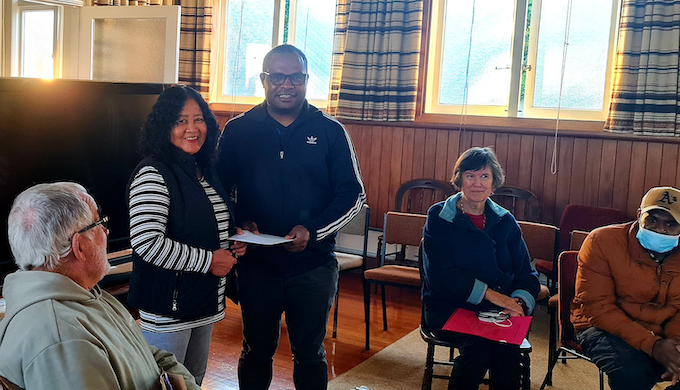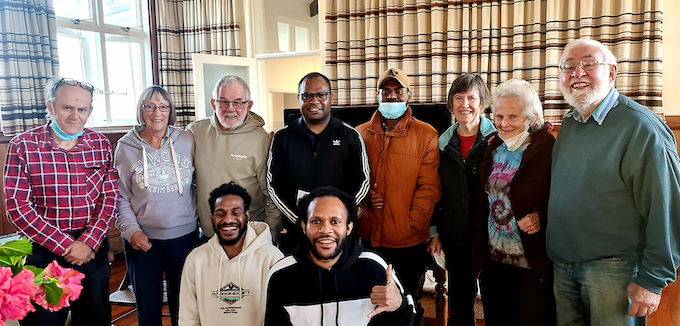Asia Pacific Report newsdesk
A movement dedicated to peaceful self-determination among indigenous groups in the Pacific is the latest group in Aotearoa to add support for struggling Papuan students caught in Aotearoa New Zealand after an abrupt cancellation of their scholarships.
About 70 Papuan students are currently in New Zealand but more than half have been negatively impacted on by the sudden removal of their Indonesian government scholarships earlier this year.
Pax Christi Aotearoa New Zealand has added its voice to media academics, church groups, community groups such as the Whānau Hub, and Green and Labour MPs in appealing for special case visas to be granted for the almost 40 students still stuck in the country trying to complete their qualifications.
It has also donated $1000 to the students fundraising campaign to assist with their living and accommodation costs while appeals have been made to some educational institutions to waive tuition fees.
A Pax Christi group met with a delegation of the Papuan students at the Friends’ House in Auckland last week.
“The 40 or so students across several institutions who are the object of our concern have been suddenly faced with the cancellation of their scholarships awarded by the Indonesian government,” said Pax Christi spokesperson Kevin McBride in an appeal to Immigration Minister Kris Faafoi this month.
He said efforts by the International Alliance of Papuan Student Associations Overseas (IAPSAO) and other relevant bodies to address their plight had been unsuccessful.
‘Perilous situations’
This had left many of them in “perilous situations” over the status of their visas and their ability to complete their qualifications.
Professor David Robie, editor of Asia Pacific Report and a specialist Pacific journalism educator for the past 30 years, is also one of the people who have appealed for special case visas for the students.
In a letter late last month to the minister, he said the students had been “unfairly treated” by the abrupt cancellation of their Indonesian scholarships.
He described it as an “unprecedented action” and that they were Melanesian students and ought to be “considered as Pacific Islanders” for completing their studies in New Zealand.
In an earlier open letter to the minister, Dr Robie said Papuan students studying in Australia and New Zealand faced “tough and stressful challenges apart from the language barrier”.
McBride said that in this Asia-Pacific region of the world, a predominant basis for division was colonisation and the effects of colonisation.
“Over many years, members of our Pax Christi section have been able to visit West Papua and to work with the mainly church-based groups there intent in improving the capacity of their people to play a significant role in the development of their nation,” he said.

Assistance with education
“Often this involves assisting them to gain educational qualifications in overseas countries and helping them cope with problems associated with that process.”
Pax Christi had been able to strengthen relationships and understanding.
“We have been hosting seminars and dialogue with sympathetic groups here in Aotearoa and across the international Pax Christi movement, which includes an Indonesian section,” McBride said.
Laurens Ikinia, a 26-year-old Papuan postgraduate communications student and the media spokesperson of IAPSAO, welcomed the assistance from Pax Christi and other groups and thanked New Zealand for its generosity.
“We are determined to finish our studies if we can,” he said.

Article by AsiaPacificReport.nz





